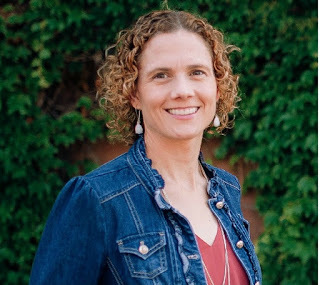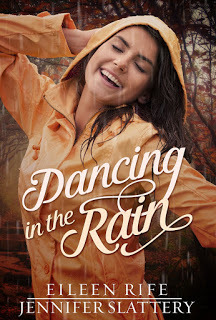Why Every Writer Needs a Critique Partner
 If you want a thriving writing career, you need to find and develop critique partnerships. Though some writers might argue against this, in my experience, behind the most talented and successful novelists stand a host of supportive—yet honest!—peer reviewers. Notice, I said peer reviewers, which means other writers. Those who understand the craft, can recognize when something in your story isn’t working, and have the ability to articulate why.
If you want a thriving writing career, you need to find and develop critique partnerships. Though some writers might argue against this, in my experience, behind the most talented and successful novelists stand a host of supportive—yet honest!—peer reviewers. Notice, I said peer reviewers, which means other writers. Those who understand the craft, can recognize when something in your story isn’t working, and have the ability to articulate why. Though some may argue against my premise, I’ve yet to encounter a novelist who signed with a major publisher without the help of a critique partner.
Here’s why:
We’re notoriously self-deceived and blinded to our own areas of weakness.
A sentence that makes complete sense to me may leave you confused. That character that struggles with anger and bitterness may come off as hateful or that plot thread that seemed so unique may feel predictable and cliché. Besides, creativity multiplies in the presence of other creative as one idea triggers another then another then another …
And yet, despite all the proven benefits (and by proof I mean in terms of a successful career), numerous writers still attempt to build their career on their own. When asked why, normally a few reasons surface.
1. I’m afraid I’ll lose my voice.
The solution: 1. Develop your voice so that it becomes as much a part of you as your hair color, alterable only by choice. 2. Equally important, grow your confidence so that you’re able to use that which is helpful and discard that which isn’t. 3. Increase your knowledge. If I were to hire a math tutor who told me 4+4=10, I wouldn’t suddenly question my addition skills. I’d get a new tutor!
As award winning psychological thriller author Carrie Stuart Parks puts it, “A good critique partner
 doesn’t change your writing, nor should he, or she, pat you on the back and say how brilliant you are. Their job is to let you know the words you’ve penned do paint a picture, move the story, or make sense. They should let you know when you’re being trite, lazy, boring, redundant, or unclear—and do so long before you send it to an editor or release it to the public.”
doesn’t change your writing, nor should he, or she, pat you on the back and say how brilliant you are. Their job is to let you know the words you’ve penned do paint a picture, move the story, or make sense. They should let you know when you’re being trite, lazy, boring, redundant, or unclear—and do so long before you send it to an editor or release it to the public.” 2. I don’t have time for critique partners.
Why are we in such a hurry? Perhaps we forget that the most enduring works take years, sometimes decades, to build. And in writing, I’m of the opinion that working with others actually saves us time—in terms of our overall career and readership growth. It’s one of those “pay now or pay later” deals. Like with anything of lasting value, we get out of it what we put in, and I’d much rather receive critical comments pre-release than post.
3. I can’t find a quality critique partner.
If this is you, I have two words: find one. At the last writing conference I taught at, less than one third of my students, in two classes, had critique partners. And I told them what I’m telling you now—if you want to grow and present your best work, you need to find your peops.
Their response may mirror yours: But how?
To which I replied: Ask around. My students had an entire classroom filled with prospects, but you’ve got an entire web. Join online organizations like ACFW and writing groups on Facebook. Reach out to other novelists; the worst that can happen is they’ll say no. And if your first, second, or third critique partner isn’t a good fit, don’t let that derail you. Simply learn what you can from their feedback and keep looking.
What about you? Do you have a critique partner? If so, what do you appreciate most from that relationship? If not, did any of the reasons I’ve encountered mirror yours? Would you have any to add? Leave a comment to get your name in a drawing for a ecopy of Singing in the Rain by Jennifer Slattery.
Jennifer Slattery is a writer and international speaker who’s addressed women’s groups, church groups, Bible studies, and other writers across the nation. She’s the author of six contemporary novels maintains a devotional blog found at http://jenniferslatterylivesoutloud.com. She has a passion for helping women discover, embrace, and live out who they are in Christ. As the founder of Wholly Loved Ministries, (http://whollyloved.com) she and her team partner with churches to facilitate events designed to help women rest in their true worth and live with maximum impact. When not writing, reading, or editing, Jennifer loves going on mall dates with her adult daughter and coffee dates with her hilariously fun husband. Connect with her on Facebook (https://www.facebook.com/JenSlatte) or Instagram (https://www.instagram.com/slatteryjen...).
Dancing inthe Rain:
On the verge of college graduation, Loni Parker seeks employment as a music teacher, but no one will hire her since she’s blind. Or so she thinks. To take her mind off her troubles, her roommate invites her to spring retreat at Camp Hope in the gorgeous North Carolina mountains.
Unbeknownst to Loni, Michael Ackerman, the director, is an ex-con responsible for the accident that caused her blindness. When Loni warms up to camp and wants to return as a summer counselor, Michael opposes the idea, which only makes Loni want to prove herself all the more. Though she doesn’t expect to fall for the guy. Still, her need for independence and dream of teaching win out, taking her far away from her beloved Camp Hope . . . and a certain director.
Camp director Michael Ackerman recognizes Lonie instantly and wants to avoid her at all costs. Yet, despite the guilt pushing him from her, a growing attraction draws him to the determined woman. She sees more with her heart than the average person does with his eyes. But her presence also dredges up a long-buried anger toward his alcoholic father that he’d just as soon keep hidden. When circumstances spin out of control, Michael is forced to face a past that may destroy his present.
Buy it here: https://www.amazon.com/dp/B07CSH8F97
Published on June 28, 2018 21:19
No comments have been added yet.



